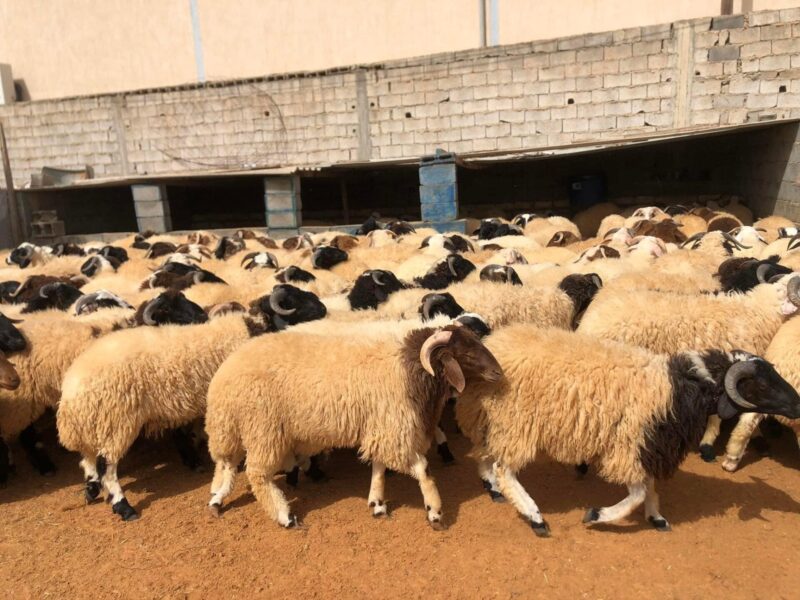Bluetongue disease affects sheep populations in Libya

The head of the National Center for Animal Health, Abdulrahman Ajbil, has confirmed an outbreak of blue-tongue disease affecting sheep across eastern and western regions of the country. Speaking to Libyan Express, Ajbil reassured that despite the spread, sheep mortality rates remain low.
Bluetongue is a viral disease affecting ruminants, particularly sheep, and is characterised by inflammation of the mouth, nose, and tongue. While not transmissible to humans, the disease can cause significant economic losses for farmers due to reduced meat and wool production.
The Center has taken immediate action by instructing its municipal offices in affected areas to collect pesticides for disease control. These offices will work in coordination with environmental sanitation departments to implement spraying operations.
The recommended protocol includes weekly spraying during peak insect seasons and the use of approved insecticides specifically designed for livestock areas.
According to Ajbil, successful disease management heavily relies on livestock owners’ vigilance and hygiene practices. He emphasised the importance of regular pen cleaning and application of specialised pesticides, noting that the disease spreads through flies and mosquitoes. Additional preventive measures include:
– Keeping animals indoors during dawn and dusk when insects are most active
– Installing insect screens in animal housing
– Maintaining proper drainage to eliminate standing water where insects breed
– Regular monitoring of animals for early detection of symptoms
Farmers noticing symptoms such as fever, excessive salivation, or swelling around the mouth and nose are urged to contact their local veterinary office immediately. While there is currently no treatment for the virus itself, supportive care can help affected animals recover.
The National Center for Animal Health continues to monitor the situation and will provide updates as necessary. Livestock owners seeking additional information or assistance can contact their local municipal office or the Centre’s emergency hotline.
How to submit an Op-Ed: Libyan Express accepts opinion articles on a wide range of topics. Submissions may be sent to oped@libyanexpress.com. Please include ‘Op-Ed’ in the subject line.
- Libya removes Cairo embassy chief in diplomatic shake-up - November 22, 2024
- Libya records over 600 road deaths in three months - November 22, 2024
- Italy faces alarming death toll from antibiotic-resistant infections - November 22, 2024


